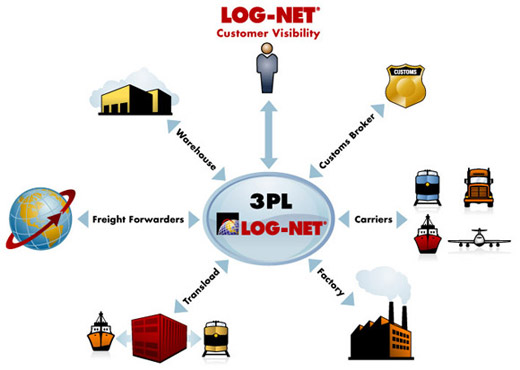Although the term “logistics” is thought to have first come into use in the military, it has a similar meaning in the world of business. In short, logistics refers to the management of the flow of resources. Most of the time, this resource flow has some sort of end goal, such as getting the resources to customers or corporations.
Third Party Logistics
Shuffling around all of these resources can be a time consuming endeavor, and something that many businesses just don’t have the time nor the resources to properly handle. This is where a third party logistics company comes in.

Essentially, a third party logistics company is a type of outsourcing organization. The client company outsources various bits and processes of resource management to the third party logistics company. Because the client company can often do this at a lower cost than handling all of the logistics themselves. This is especially evident if a company finds itself needing to expand on current and existing shipping fleets or warehouses. it is often much less expensive and more economical to outsource these logistics procedures to a third party than to build or buy a new warehouse, or to purchase additional trucks for the company’s fleet. As a result, the client company benefits from the lower cost and sees a higher profit margin.
The third party logistics company, meanwhile, needs only handle the logistics portion of the client company’s operations. Because the third party logistics company need not concern itself with running other portions of the client company’s operations, it can provide the logistics services at reduced cost. As a result, everyone wins.
What Sort of Services Do TPLs Provide?
The exact services provided by the third party logistics, or TPL, company can vary widely depending on the type of services the client company offers. TPLs often specialize in a type of service, such as warehousing, freight forwarding and transportation services.
When a TPL provides these services, they are often able to scale the scope of their services to match the needs of their client companies. When a TPL offers more than one type of service, they will often bundle those services to better provide value to their client companies, as well as to reduce the chance of a competitor stealing away their hard-earned client companies. Like so many things, the services or benefit required must be balanced with cost.
Types of TPLs
There are several types of TPls. The most basic is called a Basic TPL. These TPLs offer the most core and standard of logistics services, such as warehousing and distribution. Most of these TPLs do not perform TPL duties as their main function, but rather a side function.
Service Developers provide more value added services, such as tracking and specific or unique packaging. Many service developer firms also provide unique security services and systems, leveraging the firm’s foundation in information technologies to do so.
Customer Adapters are TPL firms that will join with a company and completely take over the entire logistics process for the client. This type of firm generally has a smaller customer base,and rarely develops new procedures, instead focusing on existing services.
Customer Developers offer the most extensive TPL services. Customer developers often integrate with the client company and provide very detailed and extensive services as they take over total control of the logistics procedures in a manner similar to customer adapters.
A Non-Asset Based Logistics Provider is a new type of TPL that has only surfaced in the last few years. These TPLs do not handle any freight or warehousing on their own, instead acting as more of a consultant to help their client companies make their own logistics processes and procedures more streamlined.
Article by Jet Russell. In his spare time, Jet likes to write articles and contribute to the blogosphere on a wide variety of topics. Including things like logistics and Internet marketing.

